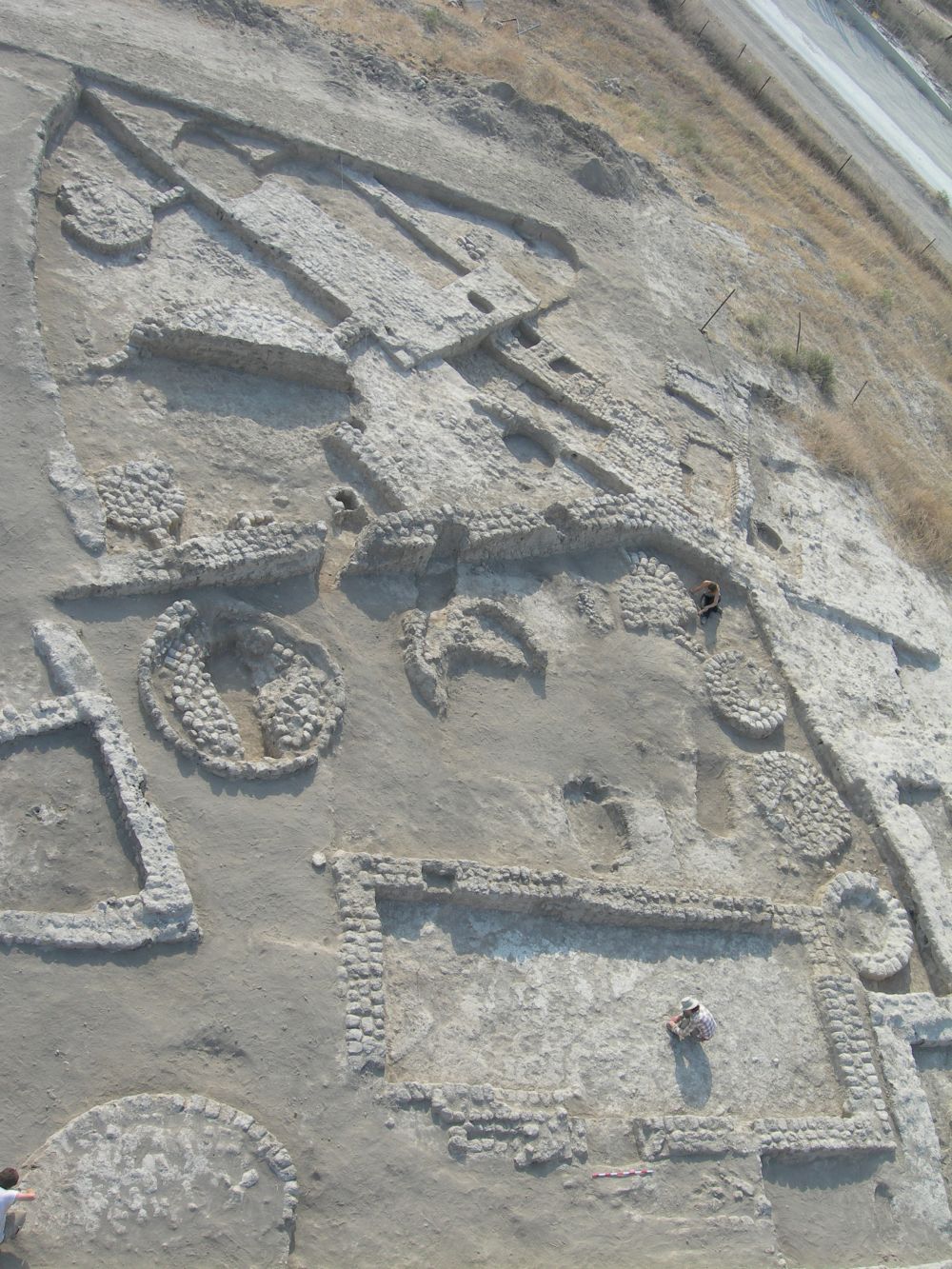Remnants of oldest ‘domesticated’ olive tree discovered in Israel
Tel Aviv and Hebrew university researchers say these trees were intentionally planted 7,000 years ago

Researchers from Tel Aviv and Hebrew universities discovered the earliest evidence for the domestication of fruit trees in Israel – in the Chalcolithic site of Tel Tsaf in the Jordan Valley.
Their findings were published Thursday in Nature’s Scientific Reports.
Specifically, the team analyzed remnants of charcoal found in the area and determined they came from olive trees, which did not grow naturally in the Jordan Valley. As such, they decided that the inhabitants intentionally planted those trees 7,000 years ago.
“Olive trees grow in the wild in the land of Israel, but they do not grow in the Jordan Valley," explained Dr. Dafna Langgut of the Jacob M. Alkow Department of Archaeology and Ancient Near Eastern Cultures and the Steinhardt Museum of Natural History at Tel Aviv University. "This means that someone brought them there intentionally – took the knowledge and the plant itself to a place that is outside its natural habitat.
“In archaeobotany, this is considered indisputable proof of domestication, which means that we have here the earliest evidence of the olive's domestication anywhere in the world,” she said.
In addition to the olive tree remnants, her team discovered charcoal from young fig branches. Fig trees did grow in the valley, but the branches would have been of little use for anything practical, such as firewood or building.
“Apparently, these fig branches resulted from pruning, a method still used today to increase the yield of fruit trees,” Langgut said.
The charcoal remnants were found in the archaeological excavation directed by Prof. Yosef Garfinkel of the Institute of Archaeology at Hebrew University. Langgut’s lab specializes in the microscopic identification of plant remains. She said that trees, even when they are burned down to charcoal, can be identified by their anatomic structure.

That’s how the team could determine they had discovered ancient olive and fig trees.
“When we found the charcoal at the site we brought them to my lab,” Langgut told ALL ISRAEL NEWS. “We looked at various dimensions that the charcoal has in order to see the anatomical structure of the wood. Each species has its own unique features that can be identified and define that species.”
To date the trees they shipped the remnants to the United States where they underwent radiocarbon dating, which measures the amount of carbon-14 in a sample to supply objective age estimates.
Langgut has been studying ancient vegetation in Israel for years, including at sites dated as far back as 1.5 million years ago. She told ALL ISRAEL NEWS she is confident no older domesticated plant has been found in the country to date.
Until now, it was suggested that between 6,000 and 6,500 years ago people started cultivating fruit trees. So, this discovery predates that estimate by several hundreds of years.
On the other hand, scientists have found lots of fruit tree remains in ancient Israel dating back around 5,000 years, Langgut added.
“This means that it [domesticated produce] was already well established by then,” Langgut said. “In my opinion, the horticulture that began 7,000 years ago led to the process of urbanization in the region.”
ABOUT TEL TSAF
The Tel Tsaf is located south of Beit She'an, Garfinkel explained.
Archaeologists understand it to have been a wealthy area, with large houses and courtyards, as were discovered at the site. There were also several granaries for storing crops.
“Storage capacities were up to 20 times greater than any single family's calorie consumption, so clearly these were caches for storing great wealth,” Garfinkel said. “The wealth of the village was manifested in the production of elaborate pottery, painted with remarkable skill. In addition, we found articles brought from afar: pottery of the Ubaid culture from Mesopotamia, obsidian from Anatolia, a copper awl from the Caucasus, and more."

Langgut said that it is possible the residents of Tel Tsaf traded in products derived from the fruit trees, such as olives and olive oil.
“Such products may have enabled long-distance trade that led to the accumulation of material wealth, and possibly even taxation – initial steps in turning the locals into a society with a socio-economic hierarchy supported by an administrative system," according to Langgut.
"The domestication of fruit trees is a process that takes many years, and therefore befits a society of plenty, rather than one that struggles to survive,” she continued. “Trees give fruit only three to four years after being planted. Since groves of fruit trees require a substantial initial investment and then live on for a long time, they have great economic and social significance in terms of owning land and bequeathing it to future generations – procedures suggesting the beginnings of a complex society.”
“If you plant an olive orchard, the trees can live for hundreds of years. It means that not only will you enjoy the products of the orchard, but your children and their children.”
The Tel Tsaf community preceded the biblical period – between about 1200 and 165 B.C. – by several thousand years, so these first trees were not directly connected to the biblical mandates that center on olives – one of the seven holy species – Langgut noted.
However, “maybe the roots of the importance of this fruit tree were planted 7,000 years,” she said.
.jpg)
Maayan Hoffman is a veteran American-Israeli journalist and strategic communications consultant. She is Deputy CEO - Strategy & Innovation for the Jerusalem Post, where she also served as news editor, head of strategy and senior health analyst.













